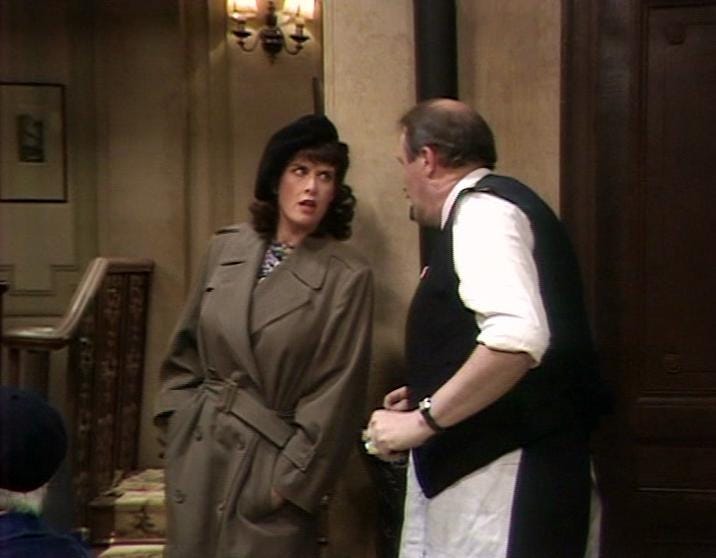
If asked what is my favourite book genre I always say whodunnits. But it is not true. It is not all whodunnits that make the cut, only the ones written in between the wars. You know, the “Golden Age” Agatha Christie and Dorothy L. Sayers and Josephine Tey ones. That is it. And then I dig a bit deeper and throw into the mix spy novels, also the in between the wars ones. I draw the line at the late 40s to lose interest when the 50s begin and things start getting technological, and orange, brown and green. Maybe it is because with technology comes distance from your victim and, as the war game becomes less “hands on”, one forgets how much there is at stake; life becomes less precious.
I am currently deep in a spy phase. I had to go undercover after descending to the depths of hell this winter (I read Dante’s Inferno and I’m still wondering why) so as a palate cleanser I treated myself to what I thought would be some “light” reading. I started with The Mask of Dimitrios, I sprinkled in some short Hercule Poirot stories and I topped it off with Our Man in Havana by Graham Greene, only to come out the other side thinking that my early spring reading has given me more food for thought than my winter menu. I have underlined more paragraphs from Our Man in Havana than I ever did any text book; this is how much one can learn from good fiction.
The story is set in the late 1950s during the Cold War but before Fulgencio Batista was overthrown and despite the transgression beyond my 40s landmark, I truly enjoyed the read, possibly because Cuba was (is?) very much stuck back in time and the book felt very 1930s. After a few necessary tedious pages key to understanding the monotonous existence of our (anti)hero, the action begins and his eyes open to what the spy game entails when some unknown power (UK intelligence? Cuban police? Cuban revolutionaries?) trash his best friend’s place looking for incriminating material. That is when he finds he is braver than he ever thought he could be, when he starts losing his only friend. The book is funny, and somewhat absurd, which makes it all the more enjoyable, but it is also heart breaking, and in that mix it becomes truly human. In what I consider the best scene of the book, our protagonist surprises his friend Dr. Hasselbacher in full reminiscence mode wearing his old World War I uniform, sitting at home, mourning the loss of none other than his innocence.
Maybe that is what I love about the first half of the XX century: the consciousnes of man shedding his innocence but still remembering what he though he could have been before the violence took it all away. And still he keeps going, despite that pain. Far from romanticising world wars, I assume I find that particular point in time compelling because I imagine the whole world seeing so much devastation and still getting on with it— the artistic: writing masterful murder miseries, dancing to swing music, building Art Deco into everything; and the mundane: growing crops, washing clothes, doing the dishes.
I have a list of books that have moved me so much I knew I would never be the same after reading them. Three of them are fiction, one is not, and they all happen with the Second World War as the backdrop one of the main characters: The End of the Affair (Graham Greene again), Moon Tiger (Penelope Lively), A God in Ruins (Kate Atkinson), and Man in Search of Meaning (Viktor E. Frankl). If I had to summarise these books in one all-encompassing sentence, I would say they are about losing and keeping going. What an insight into human nature. How bad we are, and yet, how good — but more accurately, how resilient.
My sister was diagnosed of breast cancer 4 years ago (she is fine now), and from my standpoint, which by all means was the least interesting of all of the standing points available in this story, I remember numbing myself, activating the autopilot, and taking the information in as it came.
I remember only allowing myself to lose my cool once, in front of my colleagues, possibly because they would understand:
“I keep looking at all these statistics and screaming inside: Where is she? Which of these data points is the one that will tell me if she will live or if she will die?”
I remember my colleagues just listening, not offering consolation because no one can soothe uncertainty.
I remember my mum looking at me and saying “Don’t lie to me!” as if I were secretly in possession of the knowledge about how it would all turn out.
I remember saying “I don’t know if she will die mum, I hope she doesn’t, but I don’t know. I do know, however, that right now she is fine, and I cling to that. Maybe you should too? Maybe if you are washing the dishes and you start thinking that she might not make it, maybe you should say to yourself that right now she is fine, and you are doing the dishes, and that is all you have to do right now, the dishes.”





Jen would be the first one to tell you that I love washing dishes. This didn't happen until after we got married. I think it comes down to an instant sense of finishing something.
Also the Viktor Frankl book was deeply moving.
I love your ending. Beautiful.